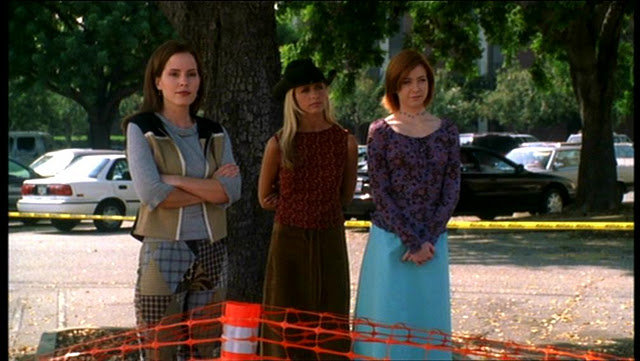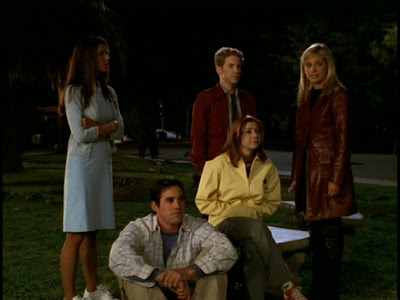Noah Review: A Sweeping Biblical Epic (Minus Most of the Pesky Christian Stuff)
By Andrew Braid
Directed by Darren Aronofsky
Starring: Russell Crowe, Jennifer Connelly, Emma Watson, Ray Winstone, Logan Lerman, Anthony Hopkins
Release Date: March 28, 2014
Presented in 2D and IMAX
I'm not really a fan of Bible stories.
To clarify, I wouldn't consider myself religious at all for that matter, though the reasons for that are a completely different (and ultimately not very necessary) discussion. But I think I can speak for many where the idea of a "Christian" film or a Bible movie sets off alarms to abandon ship right then and there. Whether it's bland, sanitized and cheaply-made drivel like Son of God (or The Bible miniseries from which it's repurposed from) or insulting, propaganda-littered and cheaply-made drivel like the recently-released God's Not Dead (I could write a whole article about how inane and full of s*** that movie is- but I won't, because it really doesn't deserve to have its existence acknowledged any more than I already have), the wastes of cinematic space that get called "Christian" films these days are a far cry from the Biblical films of yore like The Ten Commandments, Ben Hur or The Last Temptation of Christ. Hell, even in the 90s we could still get movies like DreamWorks Animation's The Prince of Egypt, an animated film (and a musical, no less!) that even in a more truncated 90 minutes or so still tells an epic, powerful story about two brothers ultimately driven apart by their diverging paths in life. This gets to the real problem with such films as they tend to be made today: they get so swept up in "inspiring people's faith" (ie. encouraging their sense of "moral righteousness" and reinforcing what they already believe) that they don't bother to put real creative or thoughtful effort into telling good, compelling stories with any real depth or dimension. Filmmakers have a sea of possibilities to work with when it comes to Biblical films (or hell, films involving faith in general), but instead they act like easily-frightened children, either too scared or too unwilling to swim out of even the most shallow end of the pool.
By contrast, Noah, the latest film from acclaimed Oscar-nominated director Darren Aronofsky (Requiem for a Dream, The Wrestler, Black Swan), does far more than just swim out of the shallow end of the pool. Noah is a film that dives headlong into the deepest waters it can find and never looks back, never letting anything stop it from trying to reach the ambitious heights it sets for itself. His only prior big-budget experience being with the divisive philosophical fantasy The Fountain (which was still made for only a quarter the budget of Noah), Aronofsky brings his distinct visual eye and a big-star cast to the table as he sets out on bringing the story of Noah's ark to life like you've never seen it before. Normally that would sound like a pull quote from the Netflix synopsis, but that's where Aronofsky really pulls you through the ringer, destroying any preconceptions one might have: you've definitely never seen the story done like this before.

By contrast, Noah, the latest film from acclaimed Oscar-nominated director Darren Aronofsky (Requiem for a Dream, The Wrestler, Black Swan), does far more than just swim out of the shallow end of the pool. Noah is a film that dives headlong into the deepest waters it can find and never looks back, never letting anything stop it from trying to reach the ambitious heights it sets for itself. His only prior big-budget experience being with the divisive philosophical fantasy The Fountain (which was still made for only a quarter the budget of Noah), Aronofsky brings his distinct visual eye and a big-star cast to the table as he sets out on bringing the story of Noah's ark to life like you've never seen it before. Normally that would sound like a pull quote from the Netflix synopsis, but that's where Aronofsky really pulls you through the ringer, destroying any preconceptions one might have: you've definitely never seen the story done like this before.
To say that describing Noah's story is an exercise in redundancy is simultaneously an understatement and a premature judgement: of course you'd know the basic story that everyone knows, but even then you likely won't be prepared for just how Aronofsky tells it. Noah is a film of a rare breed, a Bible story stripped of many of its Christian religious elements. Instead the film treats its story as if it was a mythic fantasy film, albeit one certainly not devoid of spiritual elements. The Watchers, angels encased in giant stone bodies as punishment for defying the Creator to help the humans, walk the land like stop motion figures, as if they were pulled from the works of Ray Harryhausen. "God" is never mentioned, instead referred throughout the film as "the Creator". Noah's visions are depicted as hallucinogenic dream sequences with repeating symbolism (the snake, the apple, the stone used to kill Abel), ultimately left up to Noah own interpretation. But how can Noah truly know what the Creator wants? How can he accurately derive meaning from these visions, glimpses from a being whose very existence and creed is beyond any mortal comprehension? And how could Noah ever maintain a sense of rational, clear-headed sanity after, you know, having a god in his brain?
| Because, you know, that worked out so well for this guy. |
Moreover the film has a bent much further towards evolution and environmentalism: a standout sequence from the film shows Noah's old family story about the origins of life on Earth, going from the Big Bang all the way to the evolution of the tiniest microbes, to fish, to reptiles, to apes and eventually man. This leads into the story of Adam and Eve, creating a world where the Creator and science work in tandem rather than being forced into war with one another. It's all brought to screen through the mind of Aronofsky and the film's superb visual effects, resulting in a movie that rarely spends even a moment looking anything short of astonishing. First brought to life by Aronofsky as a badass graphic novel before bringing it to screen (he took the same approach when making The Fountain), the film's barren, dying world ravaged by the descendants of Cain feels fully realized, imbued with a rich sense of mythology like the best kinds of fantasy works.
| Pictured: Badass graphic novel |
The cast too is excellent, ranging from Jennifer Connelly as Noah's wife Naameh to Emma Watson in an emotional turn as Ila, a woman taken in by Noah's family as a girl after being abandoned and scarred, incapable of bearing children. Russell Crowe gives his best performance in what feels like ages (likely his best work since Gladiator), bringing a subtle sense of nuance to what could have easily become a role consisting of little more than bland stoicism. His Noah is a man put upon to do the will of a force he cannot ever hope to truly understand, driven to go to whatever lengths he feels necessary to make a future for the world, even if he must combat the destruction of his own soul in the process. Even Logan Lerman, whom I've never really cared for before (he's usually... okay, I guess?), gives strong work as Noah's second son Ham, who more than anyone else in the family grows to doubt his father's heavy decisions. In a small yet crucial supporting role, Anthony Hopkins brings wisdom, simple wit and gravitas to the role of Noah's grandfather Methuselah. His scenes best showcase the strengths of the film's writing, at times being almost lyrical and poetic in its deep, emotional prose. Meanwhile Ray Winstone brings commanding presence as Tubal-Cain, leader of what remains of human survivors, giving the film an antagonist with equal parts savagery and cunning, who despite his immoral actions is still fighting for survival rather than mere greed or power. He is the face who represents everything Noah grows to despise about humanity, a face that will likely haunt Noah until the end of his days.
Perhaps the most crucial way Noah stands apart from other versions of the well-worn ark story is how it doesn't shy away from the inherently dark nature of the source. While the film still earns a PG-13 rating, it's a fairly violent, wrenching tale about a man who decides to leave the rest of humanity to die, a fact that Aronofsky forces both the characters and the audience to acknowledge at every turn. We as viewers are asked to truly consider the morality of a character traditionally portrayed as a "good guy", to wonder how far is too far for Noah to go in his efforts for the greater good of the Earth (one choice made by Noah in the middle of the film is downright shocking). We are made to understand and even sympathize with his plight, even as opposing sides raise entirely valid counterpoints.
The film's final act proves a fascinating subversion of the film's previous epic scope, conflicting emotions among Noah and his family morphing the story into a cabin fever psychological thriller. Naameh and the rest of the family (particularly Ham) begin to seriously doubt Noah's sanity and sense of morality, a plot that could very easily have fallen flat on its face under any other circumstances. But here they have every right to be afraid of Noah: his visions have given him (not entirely unjustified) pessimism and contempt for humanity, convincing him that if this second chance for the world is to have any hope of survival, humans should not exist in it. In this sense Noah does become a story that inspires faith, putting the audience in Noah's perspective as he grapples with his own human nature, having the deaths of many on his shoulders, ultimately learning to feel love again and give humanity a second chance (regardless of whether or not they deserve it).
| He also learned to stop taking ethics and philosophy lessons from Pamela Isley. |
Noah is a spectacular film, the kind of unique big-budget epic that one would feel lucky to see on the big screen at all, especially as we're still pretty early into the year. Some may find its ambition and particular methods of interpretation perhaps too bizarre or unwieldy (I wouldn't be surprised if the walking stone Watchers turn some people off), but even so it nevertheless makes for a cinematic experience that demands to be seen, and most certainly one that deserves a chance from those who may have already written it off. It is a film that truly incites discussion and debate amongst its audience, as great art is wont to do. Noah is Aronofsky's vision through and through, taking a story that has been told and remade to death for centuries and making it feel fresh and exciting again. In the process it sets a whole new bar for movies of its ilk, which I can only hope inspires other filmmakers to reach for such heights the next time someone gets an idea to bring a story from the old book to the screen.
Final Review Score: 9.5 / 10
Pros:
+ A visually astonishing fantasy epic from a true visionary filmmaker
+ Ambitious, bold and daring in its twists on a well-worn tale
+ Excellent performances across the board, with Russell Crowe doing his best work in years
+ Thematically rich, raising fascinating questions of morality by not shying away from the darker elements of the story most versions try to sanitize
Cons:
- Divisive, not for everyone (though frankly it's a better film for that)
Wow, two genuine contenders for my Top 10 list this year (the first, of course, being The Lego Movie), and we're only just starting April! Who'd have thunk it?


